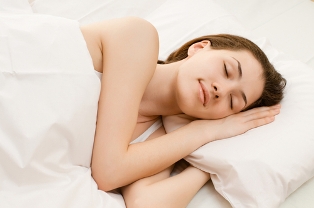Natural Herbs That Aid Sleep
Natural Herbs That Aid Sleep
There are many natural herb home remedies that are simple to make, and effective in facilitating good sleep. Taipei City Hospital TCM Dr. Chia-hao Yeh recommends the use of Mulberry (Sang Shen) Syrup, Chrysanthemum (Ju Hua) tea, and Longan fruit tea to induce sleep through their tranquilizing properties. However, it is not recommended to try any of these remedies right before you sleep, because frequent trips to the bathroom can cause upset bowels, defeating the purpose of aiding sleep.
According to Dr. Chia-Hao Yeh in a TCM lecture, during the summer and autumn seasons, Chrysanthemum (Ju Hua) tea is the most suitable TCM based beverage to aid sleep. The main ingredient for Chrysanthemum (Ju Hua) drink, 3 qian (equals to 9.5 g) of White Chrysanthemum (Ju Hua), should be mixed with a small amount of syrup and hot boiled water should be poured into the mix and left to settle for 10 minutes. The best times to drink Chrysanthemum (Ju Hua) drink is once before breakfast, and another between 5~6pm in the afternoon. In addition, drinking 1 liang (equals to 31.25g) of mulberry (Sang Shen) decocted with 1 rice bowl of water until only half a bowl of water is left, then mixed with a sprinkle of sugar, can improve heart and kidney induced sleeplessness.

However, when Longan fruit tea becomes slightly sweet, an indication that it has steeped to saturation, intake amounts should be taken with care; likewise, any tea beverages should not be had in excess prior to going to sleep, as frequent trips to the bathroom, or the urge to, will affect sleep quality.
Furthermore, Longan fruit aids tranquilizing the body and nourishing the body, with an overall moderate effect, making it very suitable for individuals with cold deficient constitutions. The commonly used TCM ingredient, Poria cum Radix Pini (Fu Shen), can improve symptoms such as insomnia and palpitations. Zizyphus (Suan Zao Ren) can sooth anxious emotions and tranquilize the nerves, but consult a trained TCM doctor before using it as a single herb or formula.
The common cold, allergy-induced asthma, the avian flu, and bronchitis often cause coughs to be filled with phlegm. Even when the illness has passed, remnants may leave behind itchy throats, night coughs, and other problems that make it impossible to sleep well. Dr. Chia-hao Yeh indicates that modified formulas of Hoelen & Bamboo Combination (Wen Dan Tang) are a popular TCM remedy to improve the sleeping quality of patients who experience night coughs and heavy phlegm after their fever.
Putting patients who experience poor quality sleep from infection-induced phlegm and night coughs aside, all those whom have just recovered from a major illness, suffering from work fatigue, experiencing depressed moods, or nervous about small unexpectancies can consider modified formulas of Hoelen & Bamboo Combination (Wen Dan Tang), with the addition of Coptis Rhizome (Huang Lian), Zizyphus (Suan Zao Ren) and other medicinal herbs. Specific formula modifications require the diagnosis of a trained TCM doctor.
In addition to medicinal remedies, daily lifestyle habits and diets can also aid sleep and improve sleep quality. Doctors recommend eliminating bad habits such as napping during the day, performing rigorous exercise during the night, participating in exciting activities in the evening, or eating too much for dinner. Furthermore, eating too late into the night, drinking too much water or beverages prior to sleeping, sleeping with an empty stomach, or drinking beverages or alcohol 1 hour before going to bed are all habits that discourage healthy sleep.